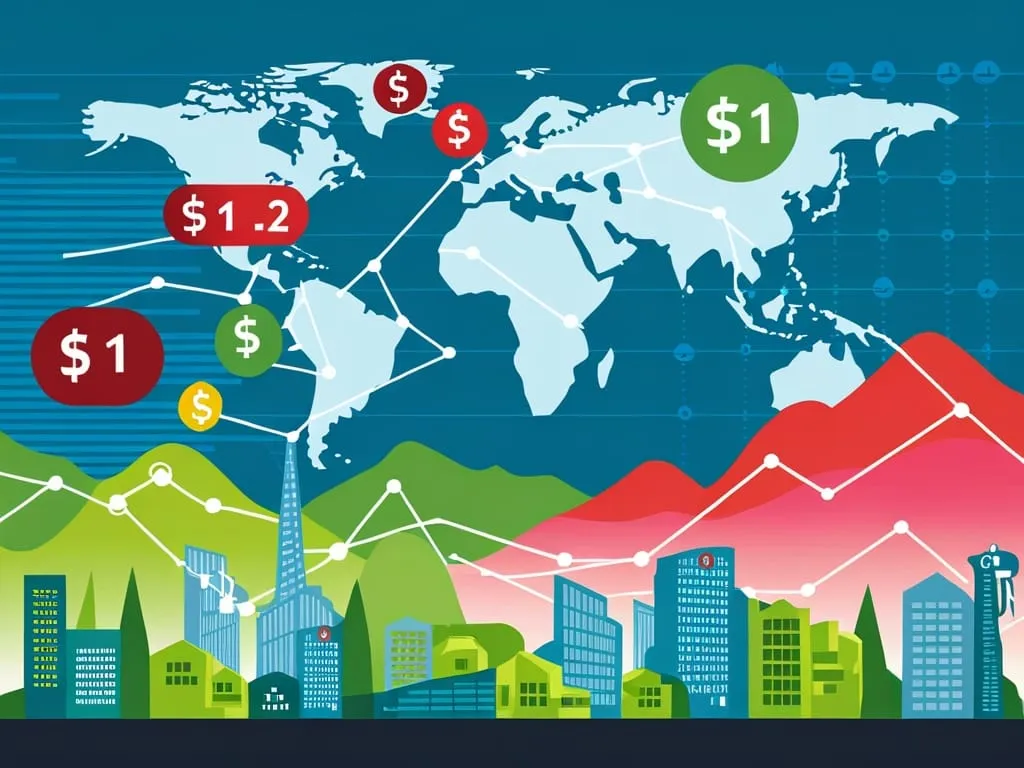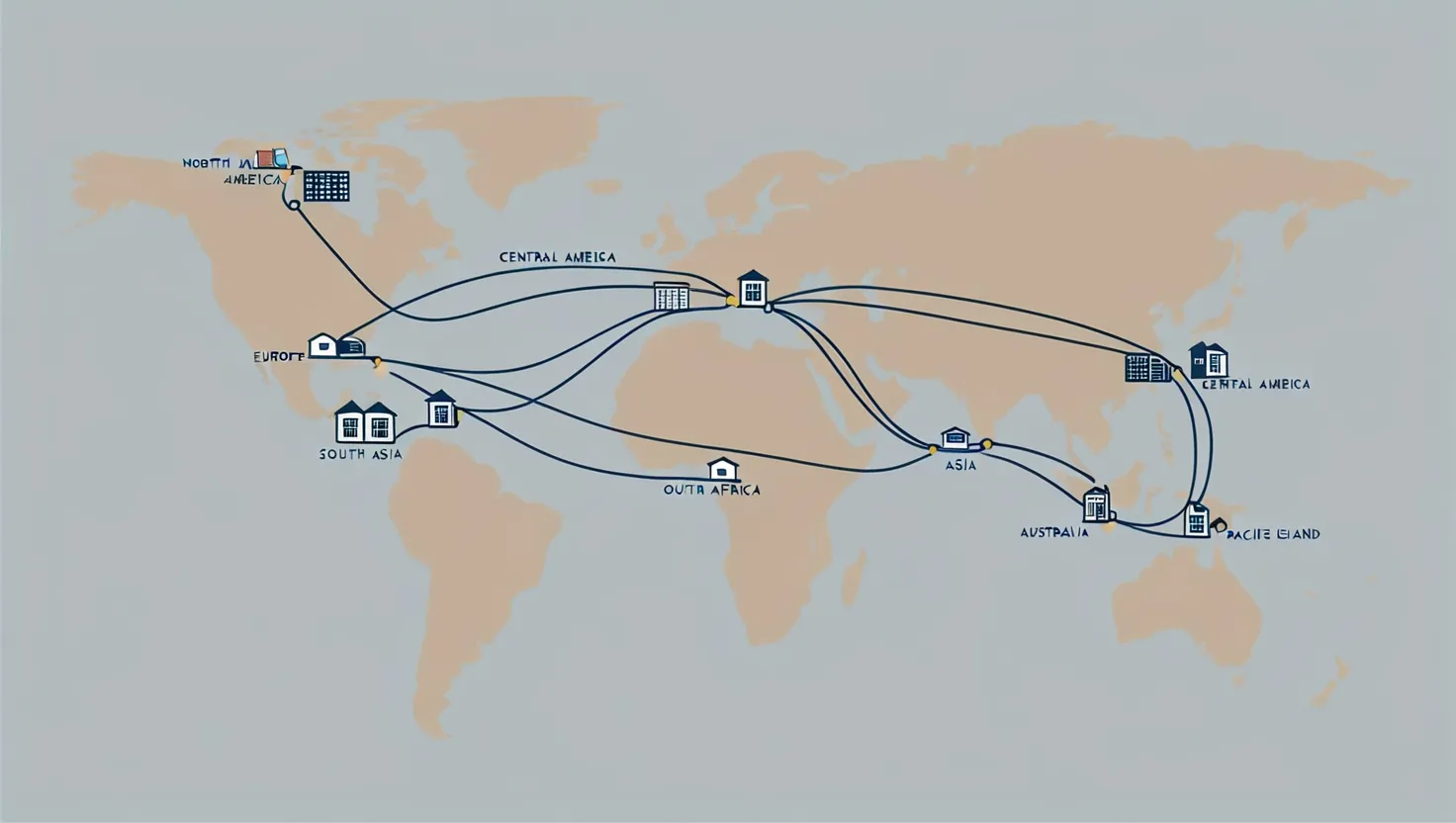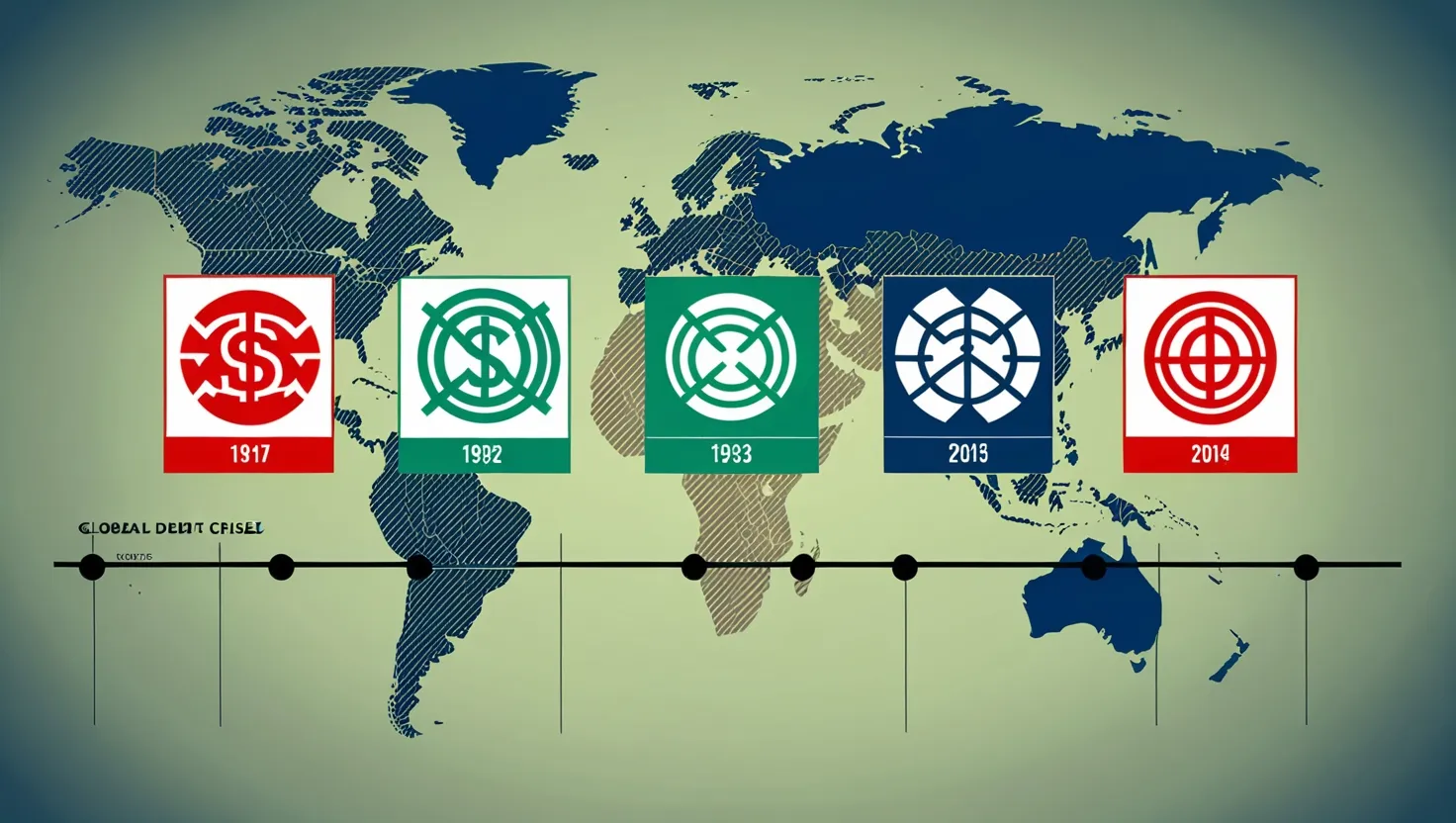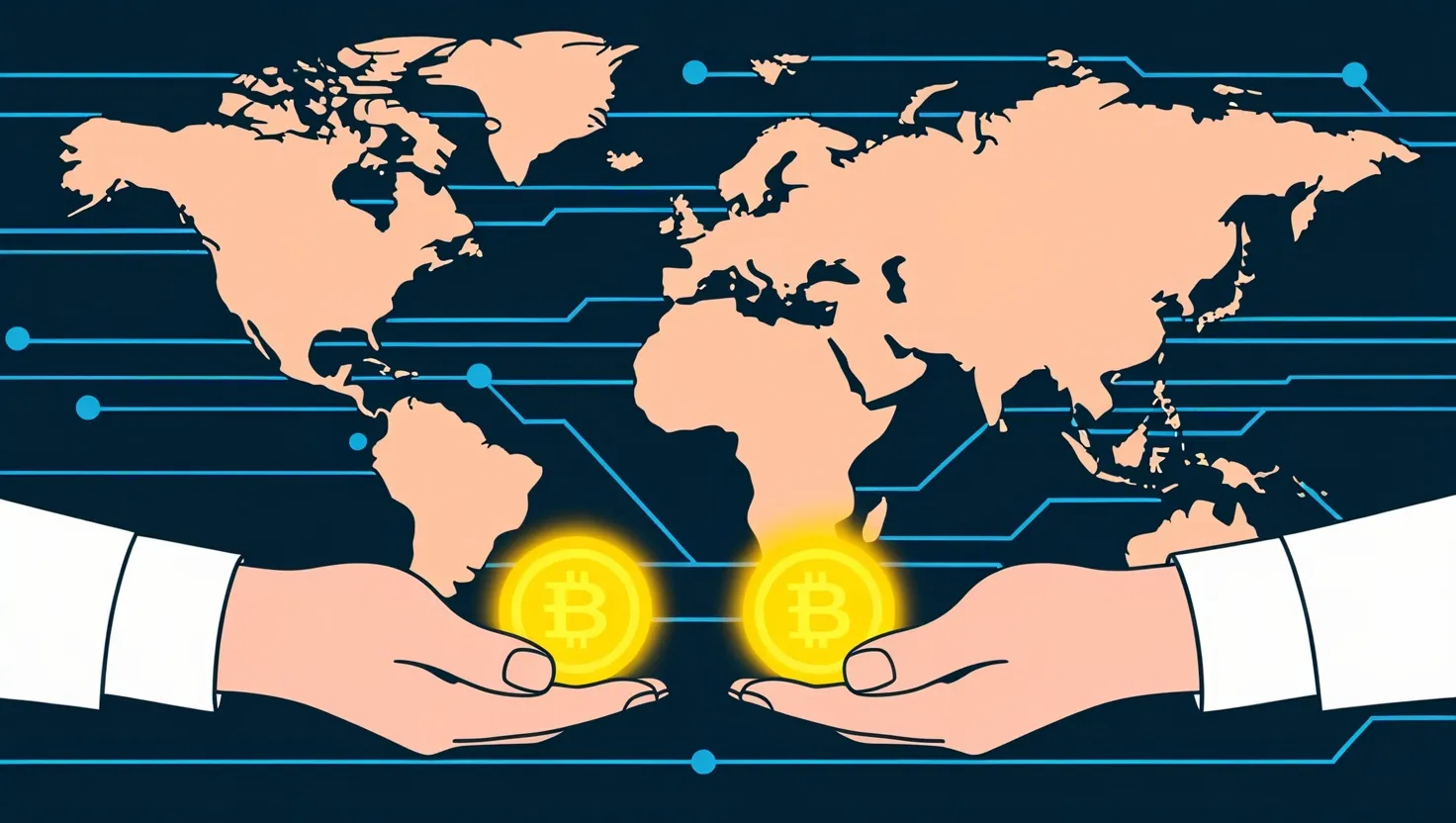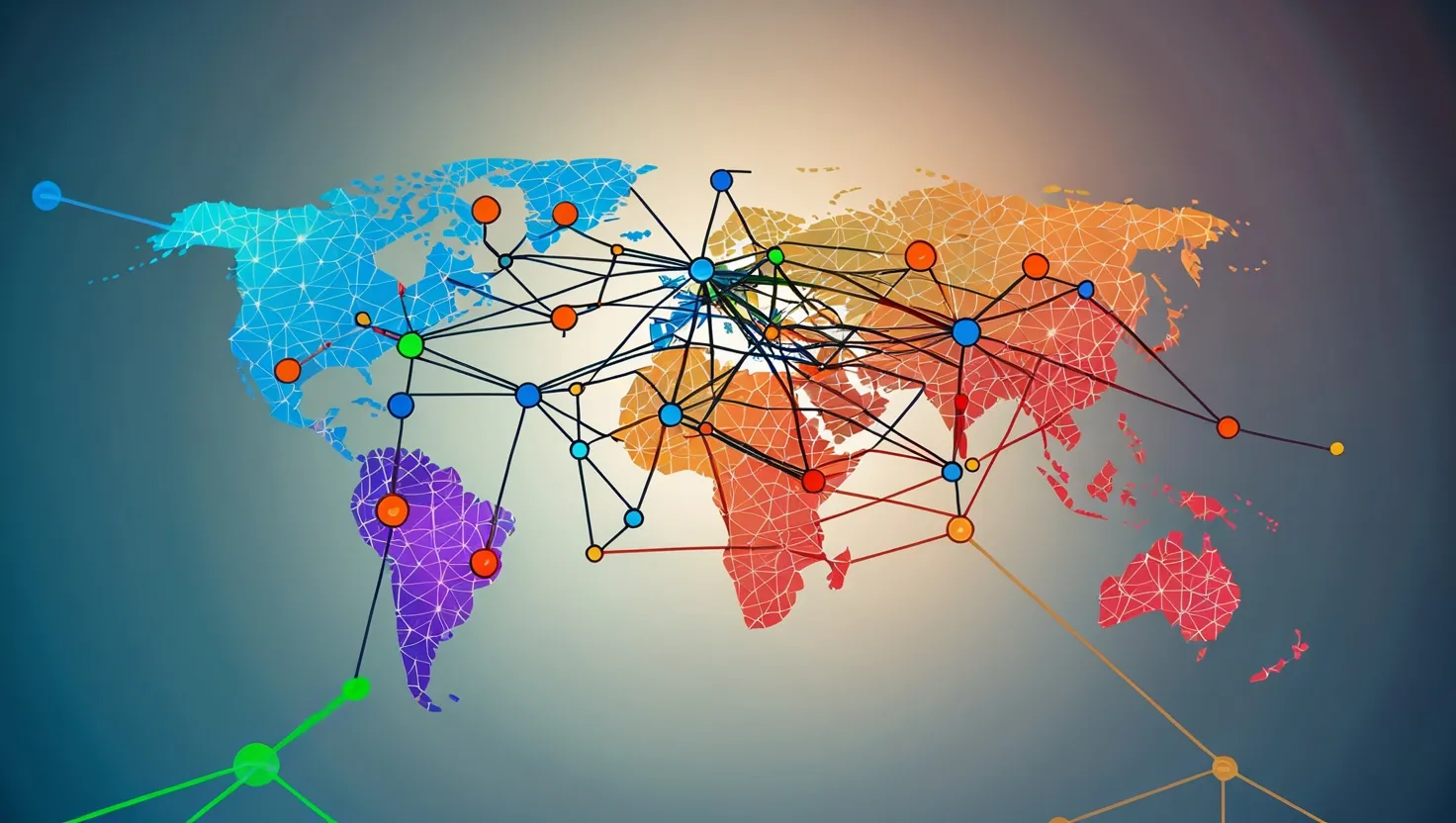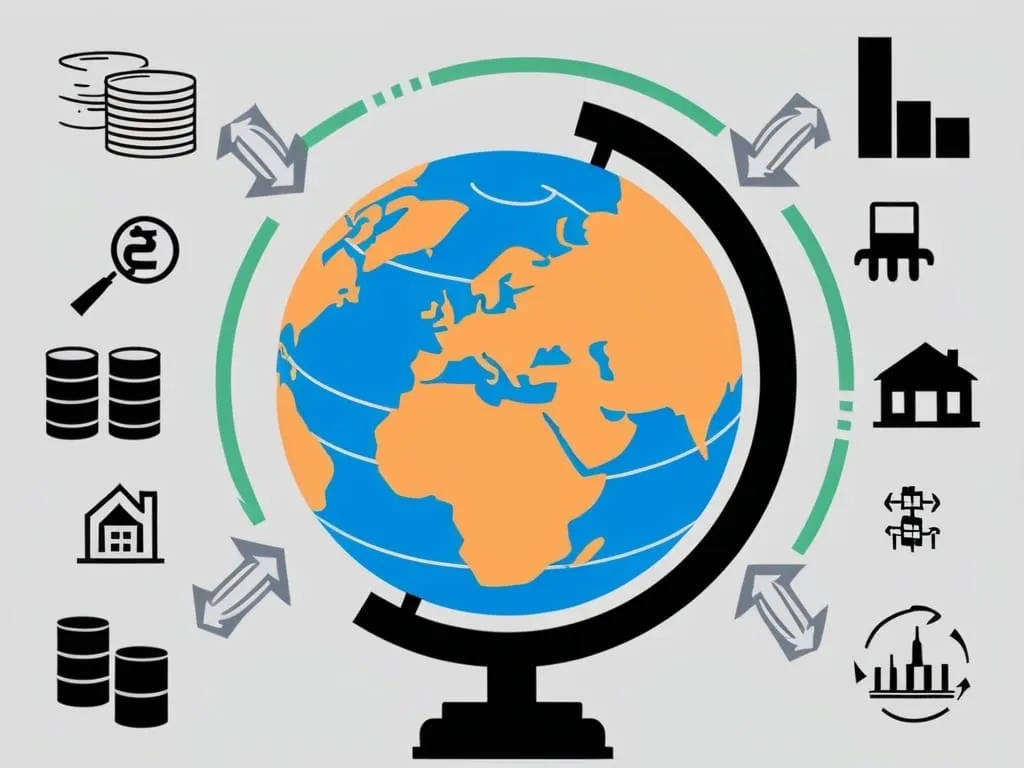When we think about the next stock market crash, our minds often wander to the familiar scenarios of past crises – the Wall Street Crash of 1929, the dot-com bubble burst, or the 2008 financial meltdown. However, the next significant market upheaval might not unfold in the ways we anticipate. Here’s why.
The Unseen Dangers of Inflation and Debt
One of the lesser-discussed but potent triggers for a market crash is the phenomenon of a "reverse market crash." This isn't your typical crash where values plummet; instead, it's a scenario where the market surges while the underlying economic system collapses. This can happen due to rampant inflation and debt mismanagement.
Imagine investing a small amount of money that grows exponentially in a short period, only to find that the value is meaningless because the currency itself has devalued drastically. This is what happened in Germany during the hyperinflation of the 1920s, where the value of money became so inflated that it was practically worthless. Such scenarios, though rare, highlight the unpredictable nature of economic crises.
Global Interconnectedness
The stock market is no longer isolated to national borders; it's a global web where events in one region can trigger a domino effect worldwide. The recent market crash in August 2024, for instance, began in Asia and quickly spread to Europe and the US. This global interconnectedness means that a crisis in one part of the world can swiftly become a global issue.
Geopolitical tensions, such as the ongoing conflicts in the Middle East or the trade wars between major economies, can create uncertainty that reverberates across markets. For example, the electoral conflict in Venezuela and regional tensions in the Middle East have affected global oil markets and investor confidence, showing how far-reaching these impacts can be.
The Role of Central Banks
Central banks play a crucial role in stabilizing or destabilizing markets. A decision to raise interest rates, like the Federal Reserve's aggressive 0.75% rate hike in August 2024, can drastically increase borrowing costs and impact everything from mortgages to credit card interest rates. This move, aimed at curbing inflation, can also make borrowing more expensive, dampen economic activity, and apply downward pressure on stocks.
The unwinding of carry trades, where investors borrow at low interest rates in one currency to invest in higher-yielding assets in another, can also trigger a market crash. When interest rates rise, as they did in Japan recently, investors are forced to liquidate their positions, leading to a cascade of selling that can depress market prices further.
Market Speculation and Volatility
Market speculation can significantly impact stock market fluctuations. After years of low interest rates and easy money, markets have become sensitive to any shifts in economic policy. The recent uptick in federal and personal debt levels, combined with rising inflation rates, has prompted central banks to increase interest rates, leading to market volatility.
The tech sector, which has been a significant driver of market gains, is particularly vulnerable to such volatility. High valuations, regulatory pressures, and disappointing earnings reports from tech giants like Apple and Amazon can lead to a broad-based decline in tech stocks. This sector's downturn can ripple throughout the broader market, contributing to an overall decline.
Corporate Reactions and Investor Sentiment
When the market crashes, corporations react swiftly to protect their interests. Hiring freezes, budget cuts, and expense reductions become common as companies preserve cash and navigate uncertain times. Google and Microsoft, for example, have announced hiring freezes in response to the recent market conditions. These corporate actions can lead to slower economic growth and potentially trigger layoffs, further exacerbating the economic slowdown.
Investor sentiment also plays a critical role. The VIX, or "fear gauge," which measures market volatility, can spike during times of crisis, reflecting high levels of anxiety and uncertainty among investors. This volatility makes it challenging for investors to make informed decisions, often leading to emotional rather than rational reactions.
The Impact of Geopolitical Events
Geopolitical events are another significant factor that can contribute to market instability. Ongoing conflicts, trade wars, and political instability in key regions can create uncertainty that affects global markets. For instance, the trade war between the US and China, combined with regional conflicts, has added to market volatility and investor anxiety.
In Europe, social and cultural battles over immigration, national identity, and governance have led to political instability, which can deter investment and economic growth. These combined geopolitical risks contribute to a cautious or even bearish outlook among investors, as the potential for unexpected outcomes remains high.
Protecting Your Assets
Given the unpredictable nature of market crashes, it's crucial to stay prepared and protect your assets. Whether you own real estate, stocks, or cryptocurrency, monitoring your investments and ensuring they are shielded from market volatility is essential.
Diversification is key. Spreading your investments across different asset classes can help mitigate risks. For example, investing in real estate or bonds can provide a safer haven during times of stock market turmoil.
Staying informed but not reacting impulsively is also vital. Market crashes often lead to panic selling, which can exacerbate losses. Instead, having a long-term investment plan and sticking to it can help you navigate turbulent times more effectively.
Conclusion
The next stock market crash might not follow the traditional scripts we're familiar with. It could be triggered by lesser-known factors such as reverse market crashes, global geopolitical tensions, or the actions of central banks. Understanding these unconventional angles and being prepared can make a significant difference in how you weather the storm.
As an investor, it's important to stay vigilant, diversify your portfolio, and avoid making emotional decisions based on short-term market fluctuations. By doing so, you can better protect your assets and ensure that your financial plans remain on track, even in the face of unexpected market upheavals.
